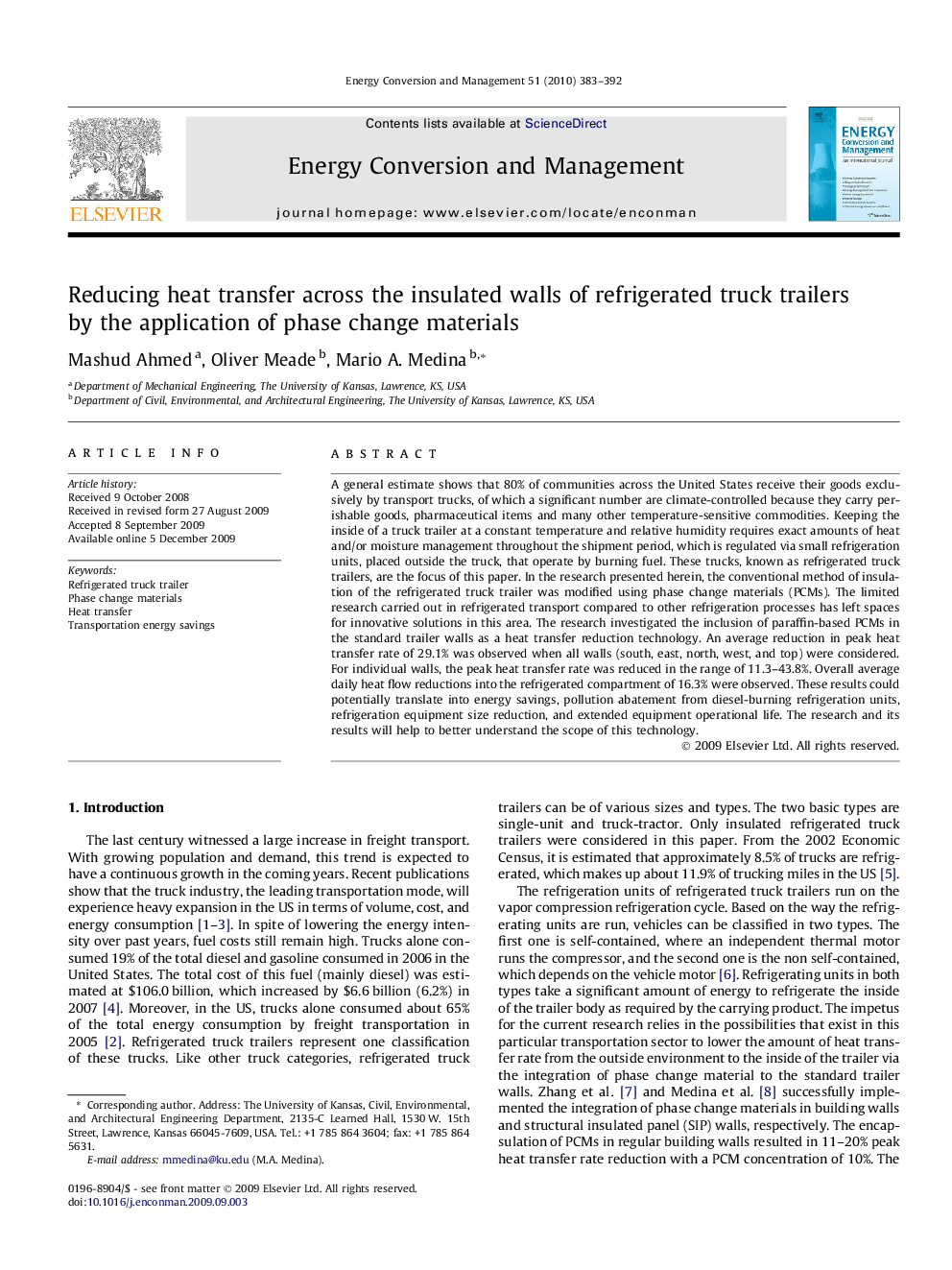| Article ID | Journal | Published Year | Pages | File Type |
|---|---|---|---|---|
| 772604 | Energy Conversion and Management | 2010 | 10 Pages |
A general estimate shows that 80% of communities across the United States receive their goods exclusively by transport trucks, of which a significant number are climate-controlled because they carry perishable goods, pharmaceutical items and many other temperature-sensitive commodities. Keeping the inside of a truck trailer at a constant temperature and relative humidity requires exact amounts of heat and/or moisture management throughout the shipment period, which is regulated via small refrigeration units, placed outside the truck, that operate by burning fuel. These trucks, known as refrigerated truck trailers, are the focus of this paper. In the research presented herein, the conventional method of insulation of the refrigerated truck trailer was modified using phase change materials (PCMs). The limited research carried out in refrigerated transport compared to other refrigeration processes has left spaces for innovative solutions in this area. The research investigated the inclusion of paraffin-based PCMs in the standard trailer walls as a heat transfer reduction technology. An average reduction in peak heat transfer rate of 29.1% was observed when all walls (south, east, north, west, and top) were considered. For individual walls, the peak heat transfer rate was reduced in the range of 11.3–43.8%. Overall average daily heat flow reductions into the refrigerated compartment of 16.3% were observed. These results could potentially translate into energy savings, pollution abatement from diesel-burning refrigeration units, refrigeration equipment size reduction, and extended equipment operational life. The research and its results will help to better understand the scope of this technology.
